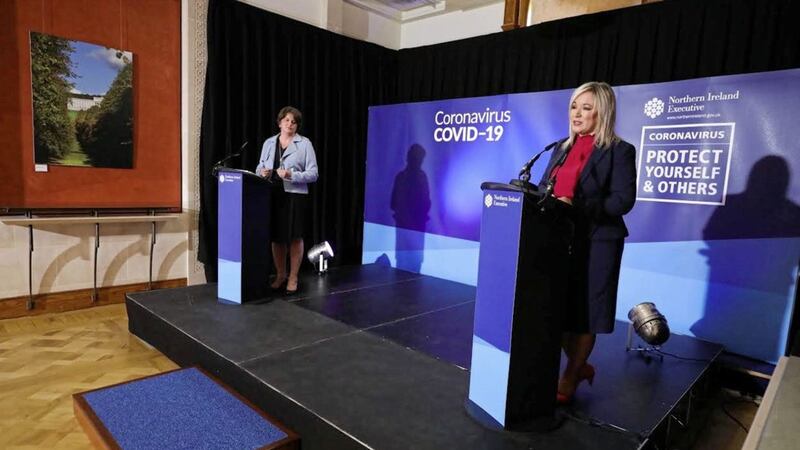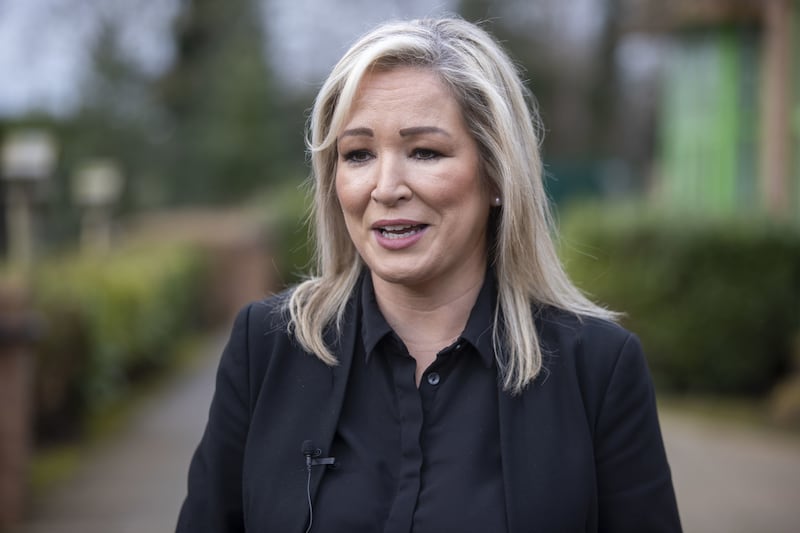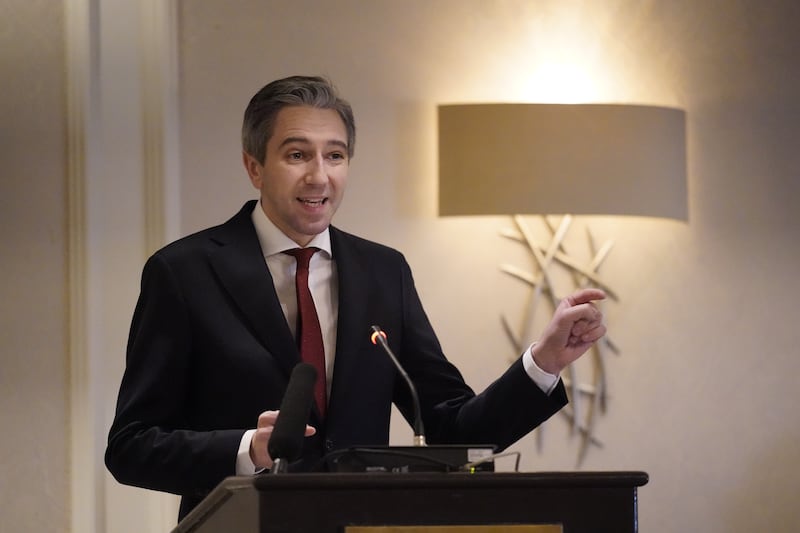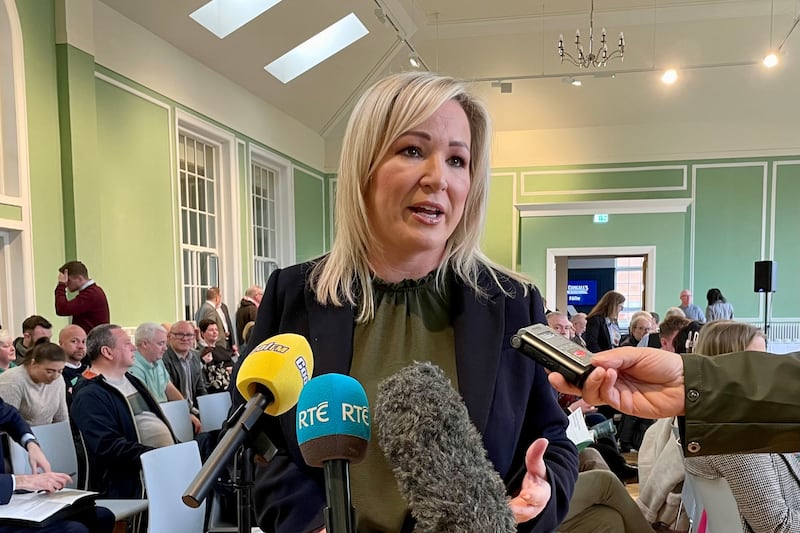The one change to political reporting that no one will miss is the end of the 'donut' of party representatives, circled behind government ministers during press conferences.
For Michelle O'Neill removing the circle of mainly male members of her own party from behind her and allowing her to speak confidently as a leader in her own right, has helped the public perception of her enormously.
Being elected by her own party members in November 2019 also put a more confident spring in her step.
No longer subject to accusations of being anointed, she immediately appeared more confident in her role.
A former health minister, her knowledge and contacts made during that time helped her get to grips with the Covid pandemic at an early stage and along with Arlene Foster she provided a united front, the two women using first names when addressing each other in public.
There had been a tendency in the past to underestimate Michelle O'Neill's ability. It remains the case that despite societal changes women are held to a higher standard than their male colleagues, specifically in the political arena.
Sinn Féin were keen to align with the South from the early days of virus control and this put Ms O'Neill at times at odds with her unionist executive colleagues, something that tested ability in her leadership.
She was castigated by unionists for publicly slating health minister Robin Swann over a decision to follow Whitehall's lead in abandoning community testing in March, saying later she had no regrets about speaking out.
"I was criticised at the start for speaking out. I wouldn't do that differently, I'll continue to do that," she told the Irish News.
Not being afraid to speak out caused both public and press to look at Ms O'Neill in a new light.
There is also a likeability about the Deputy First Minister, she has a warmth, a down to earth way of speaking and a natural empathy.
And it was this ability to relate that seemed to help heal the rift between herself and Arlene Foster, both leaders realising that the public needed to see them united in the battle against the virus.
In fact up until a few weeks ago there was nothing but praise for the actions of the Deputy First Minister who had excelled herself during the crisis.
And then came the funeral of veteran republican Bobby Storey.
Ms O'Neill was always going to attend the funeral of the IRA man turned Sinn Féin strategist.
That it is something that is incomprehensible to those from outside of republican circles, but not attending would have been seen as an unforgivable, careerist move by those from within that movement.
Sinn Féin members are activists not employees.
Where she was let down - and let herself down - was in the lack of any forward planning for her attendance.
I was in Andersonstown the morning of the funeral as hundreds of people had started to gather at the side of the road.
It didn't take a political strategist to work out that the attendance of executive ministers at such a large funeral was going to be controversial and yet the party seemed completely unprepared for the backlash.
She has been let down by her own advisors and now needs to pick herself up, dust herself off and move on from the controversy, because too much is at stake.







